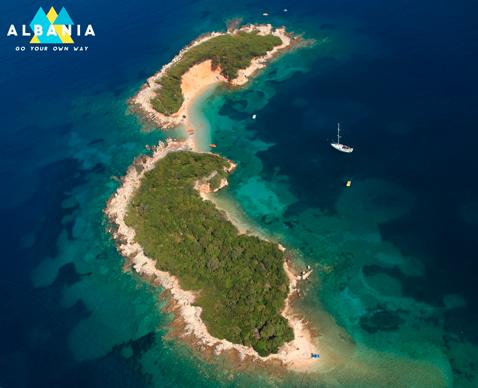
3 minute read
RECOVERY IN A RESILIENT AND SUSTAINABLE TOURISM
BY ARIOLA MEREPEZA *

The current situation of Covid-19, which affected Albania and the whole world, is an opportunity to take measures to make tourism more powerful, sustainable and resilient to these occurrences. Tourism is an important part of many national economies and the immediate shock to the tourism sector, resulting from the coronavirus pandemic, is affecting the wider economy. According to the United Nations, international tourism could decline by 60-80 per cent in 2020 due to the Covid-19 pandemic, resulting
in the revenue loss of $910 billion to $1.2 trillion and placing millions of livelihoods at risk. Today over 100 million jobs directly related to tourism are at risk. Apart from this direct impact, the tourism economy is also linked to many other sectors including construction, agriculture, distribution services and transportation, all of which exacerbate the size of the shock.
In Albania, tourism is considered as one of the main sectors of national economic development. The National Tourism Development Strategy states that this sector contributed $ 1.12 billion to the economy, though if indirect effect is also considered, the contribution is thought to be three times higher ($ 3.47 billion), which otherwise accounts for 26.2% of Gross Domestic Product.

Resilient and sustainable tourism
Development of Albania in order to turn it into a resilient and sustainable tourism destination. According to the World Tourism Organization (UNWTO), sustainable tourism takes full account of its current and future economic, social and environmental impacts, addressing the needs of visitors, industry, the environment and host communities. The Principles of Sustainability refer to the environmental, economic and socio-cultural aspects of tourism development and establishing a balance between these three dimensions to guarantee its long-term sustainability.

A resilient tourism means the ability to recover quickly from hardship, to turn back or to recover from disaster or catastrophic events. Businesses and tourism destinations face adverse challenges so they need to be adaptive.
Measures to overcome the tourism crisis of Covid-19
• Adapting tourism development strategies in a resilient and sustainable way. Undertaking new measures consisting on adapting marketing strategies and innovative business models in the provision of tourism products.
• Reforming tourism towards responsibility and inclusion. The tourism sector can have a significant environmental and social effect, therefore policies that protect tourism resources, destinations and the community need to be revised, be agile and sustained.
• Creating an image for a safe and reliable travel destination. It is important to take the necessary safety measures and to promote the country as a safe travel destination.
• Focus on local and regional tourism. Although domestic or regional tourism is unlikely to replace international tourism numbers, this can serve as a strategy to overcome the economic crisis until the situation normalizes and supports the safe return of international tourism.

• Close multilateral cooperation and strong support are essential in reactivating travel. Cooperation and sustainability of traveling rules at bilateral, regional and international levels are the cornerstones that will allow tourism to resume safely and accelerate economic recovery.
• Tourism, not as a separate field, but closely related to various areas such as health, transportation, environment, foreign affairs and economic policies. Governments need to approach the recovery of tourism in a more integrated way, involving all levels of government, the private sector and civil society in a practical and actionable plan to revive the tourism sector. ----










